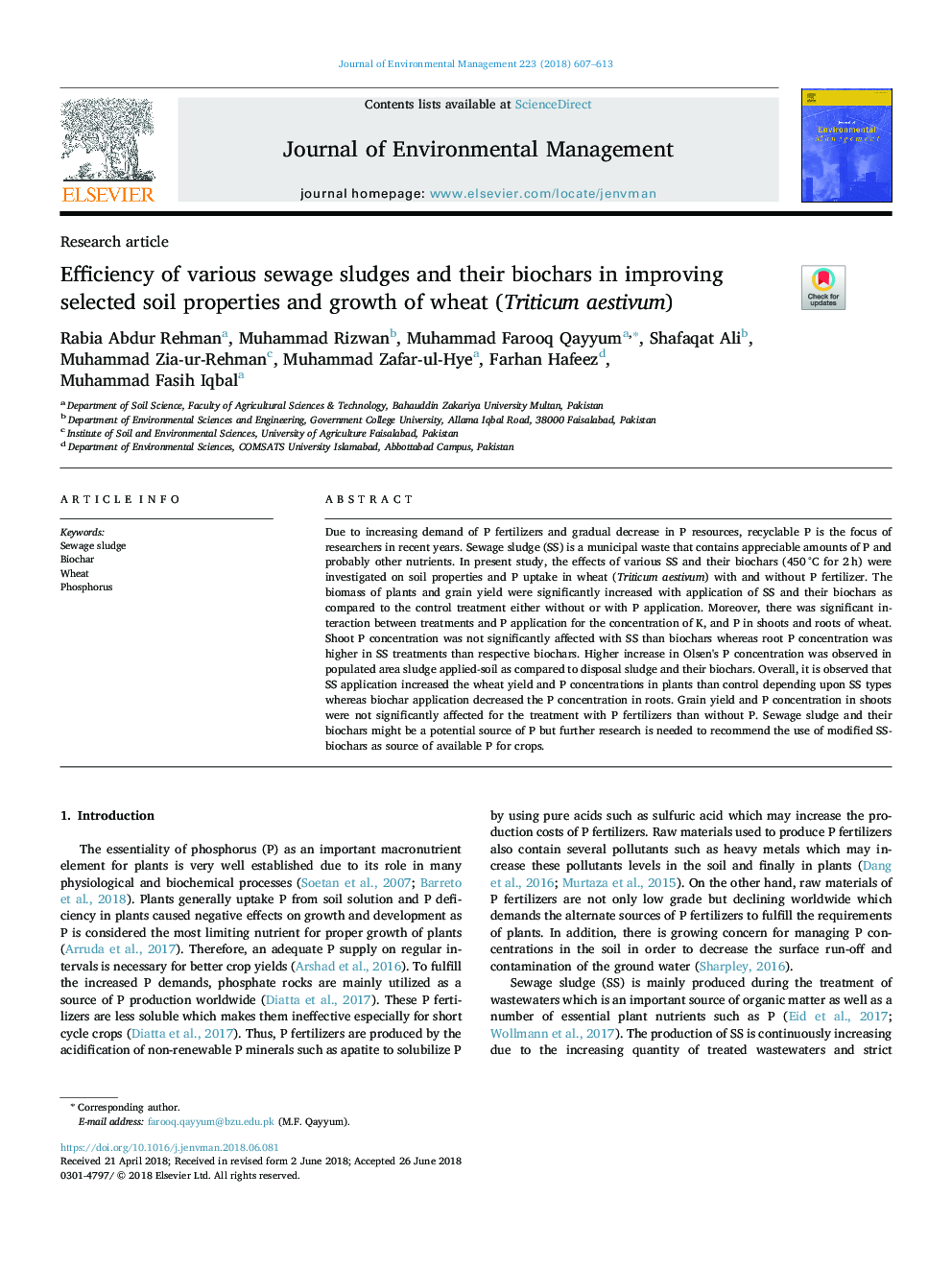| Article ID | Journal | Published Year | Pages | File Type |
|---|---|---|---|---|
| 7476037 | Journal of Environmental Management | 2018 | 7 Pages |
Abstract
Due to increasing demand of P fertilizers and gradual decrease in P resources, recyclable P is the focus of researchers in recent years. Sewage sludge (SS) is a municipal waste that contains appreciable amounts of P and probably other nutrients. In present study, the effects of various SS and their biochars (450â¯Â°C for 2â¯h) were investigated on soil properties and P uptake in wheat (Triticum aestivum) with and without P fertilizer. The biomass of plants and grain yield were significantly increased with application of SS and their biochars as compared to the control treatment either without or with P application. Moreover, there was significant interaction between treatments and P application for the concentration of K, and P in shoots and roots of wheat. Shoot P concentration was not significantly affected with SS than biochars whereas root P concentration was higher in SS treatments than respective biochars. Higher increase in Olsen's P concentration was observed in populated area sludge applied-soil as compared to disposal sludge and their biochars. Overall, it is observed that SS application increased the wheat yield and P concentrations in plants than control depending upon SS types whereas biochar application decreased the P concentration in roots. Grain yield and P concentration in shoots were not significantly affected for the treatment with P fertilizers than without P. Sewage sludge and their biochars might be a potential source of P but further research is needed to recommend the use of modified SS-biochars as source of available P for crops.
Keywords
Related Topics
Physical Sciences and Engineering
Energy
Renewable Energy, Sustainability and the Environment
Authors
Rabia Abdur Rehman, Muhammad Rizwan, Muhammad Farooq Qayyum, Shafaqat Ali, Muhammad Zia-ur-Rehman, Muhammad Zafar-ul-Hye, Farhan Hafeez, Muhammad Fasih Iqbal,
